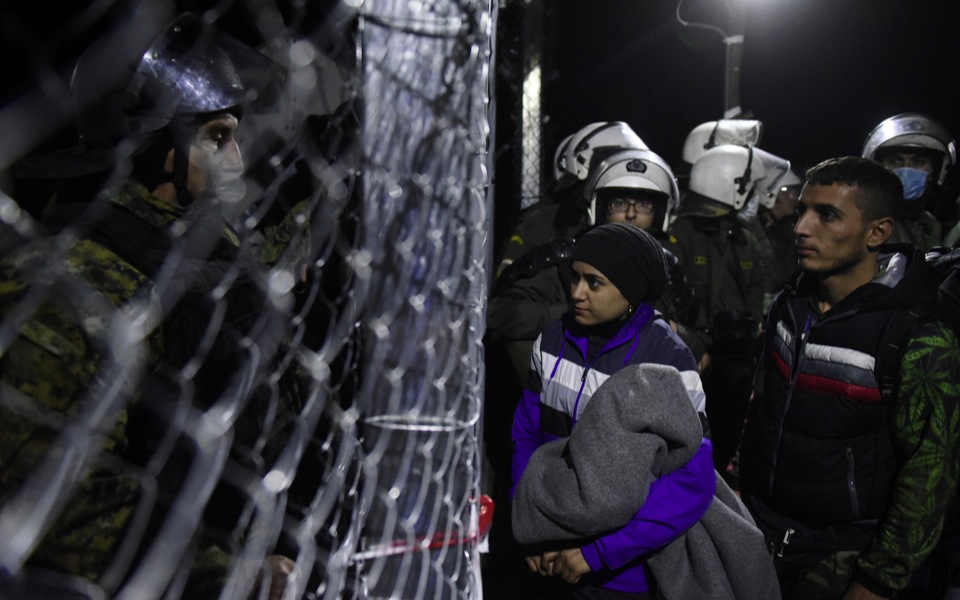The threat of exclusion

Threats from some European Union states to suspend Greece from the Schengen zone of open border travel because of its failure to stem large numbers of migrants cannot be underestimated. In the event of an exclusion from Schengen (denials from the Greek government spokeswoman cannot be taken seriously) Greece will find itself halfway out of the EU. Worse, the country will bear the mark of a “failed state,” a state undeserving of a treaty that allows the free movement of European citizens.
This treaty is in fact one of the fundamental pillars of the EU as we know it, and that is why the refugee issue has come to be seen as a threat to the bloc. Should Greece be left out of Schengen, then an exit from the euro area, perhaps even an exit from the EU, will only be a matter of time.
It is hard to be sure about the extent of the pressure for a Greek Schengen exit, or which direction it is coming from (although Germany does not seem to be one of the champions of a Greek exclusion). In fact, the speculation might even be aimed at promoting a broader agenda.
To be sure, the government has made a mess of the refugee issue – even to the extent that this could be managed by a country such as Greece. But this failure, combined with the administration’s ineptitude, has generated a state of constant rejection on Athens’s part. This, in turn, has fueled a skeptical attitude toward Greece and the drafting of increasingly uncomfortable plans, such as assigning European border controls to Turkey, let’s say.
Greece has been accused of dragging its feet in identifying migrants and refugees. It turned down fingerprinting scanners, it turned down Frontex aid in guarding its borders with Turkey and the Former Yugoslav Republic of Macedonia (FYROM), and it turned down humanitarian aid from its European partners.
Greek reluctance has clearly been driven by concerns of being expected to cooperate with Turkey in the Aegean Sea as well as worries that a large number of refugees and migrants will remain stranded within Greek territory.
Once again, the Greek government underestimated the reaction and pressure from other European states which also wish to fend off the refugee wave. It also failed to grasp the change of mood in the wake of the Paris attacks.
In light of recent developments, Greece will find it hard to avoid working with Turkey and other European states in the Aegean.
Having failed to show the necessary flexibility earlier on, it is now being forced to do so following the construction of the fence along the FYROM border and the Schengen threats. The government is rushing to minimize the damage.





